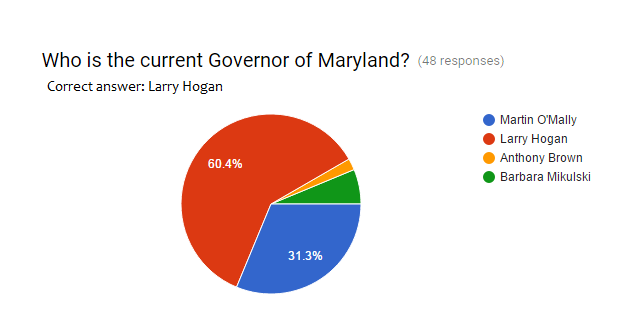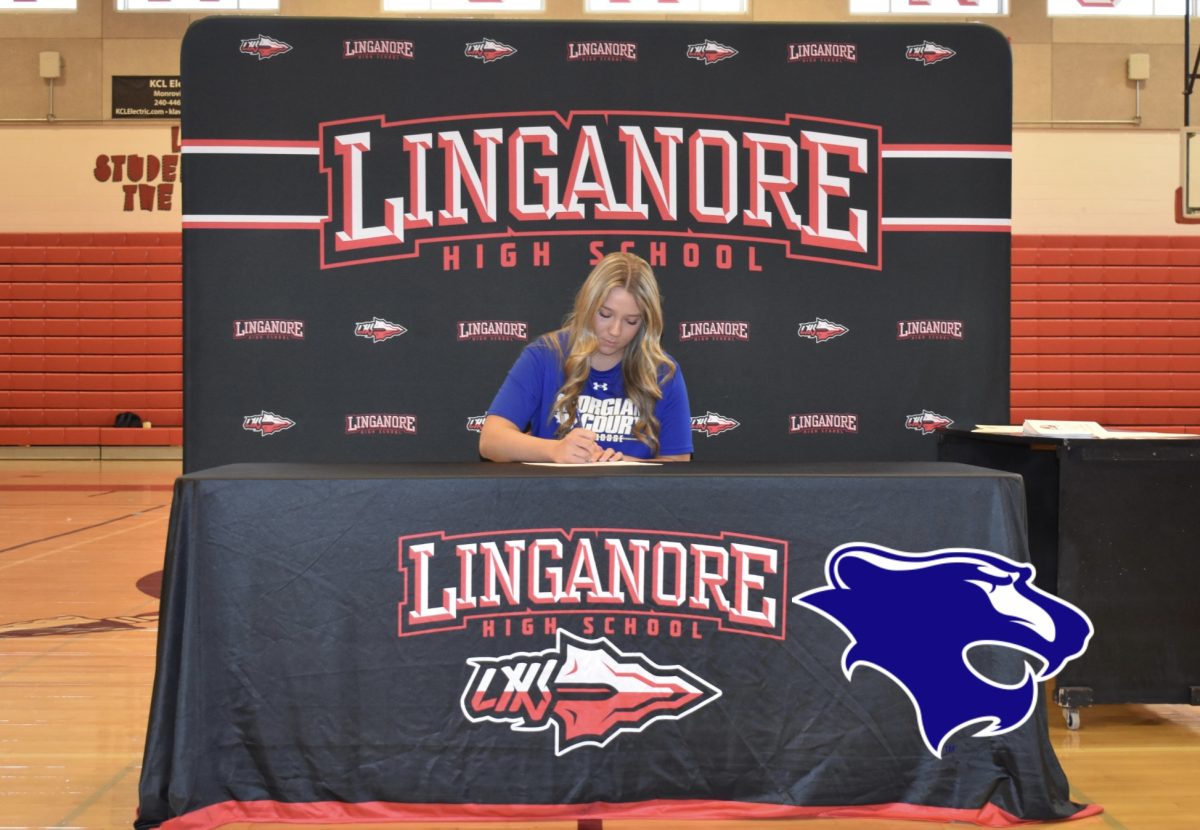Maryland Politics: Do you know who represents you?
March 14, 2016
There’s campaign ads on every channel; the news showing a constant coverage of politics; and everyone is preparing for April 26th, election day in Maryland! Did you know that there is more than one election? The Maryland primaries decide state offices, too.
With all the buzz about the presidential election, there’s little to no focus on the candidates running to represent Maryland in Congress and local offices. How much do you know about the candidates who want to represent you? Lancer Media polled students to find out, and the results were surprising.
Only 60.4% of students knew that our current governor is Larry Hogan, and 52% thought that this was a governor election year, which it is not. Among the respondents were many who will be eligible to vote in April, revealing that more education is needed.
Senior Lexi Baughman feels that she does not know enough about Maryland politics because there is not as much attention as there should be. Baughman said, “I would be interested to learn about politics in Maryland. I think it’s important to know national politics and state politics.”
Social studies teacher Darren Hornbeck is active in current events and regularly studies those running for office. He thinks that the reason national elections outshine state elections is because there is less coverage of state elections on national news channels.
This year the elections at the state level will be held for one Senate seat and all eight seats in the House of Representatives at the federal level. Barbara Mikulski is openeing the Senate seat when she retires after 30 years of service. It’s important to be informed about our representatives in Congress because they have the power to affect the citizens of Maryland the same, if not more than, the President will.
Hornbeck said, “We have responsibility to educate ourselves on the candidates.”
When researching candidates, it’s important to look at the candidate’s stances on issues and controversies–don’t just listen to the smear advertising or align yourself with one party.
Hornbeck has some advice for prospective voters when researching candidates: “Look at the candidate’s views on issues to see what most closely matches yours. If a candidate has held office before look at their voting records, and also pay attention to not only what the politicians say, but what they dot’t say.”
Hornbeck also strongly recommends to look at non-partisan websites to make sure you’re getting unbiased facts about politicians.
If you want to be more educated on who is running for Maryland offices, some helpful websites are Vote Smart, Policits1, Maryland.gov, and Ballotpedia.






